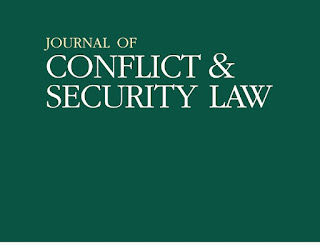Rebuilding state legitimacy is a thorny challenge in the aftermath of civil wars. The international community has stepped in to support post-conflict states in rebuilding state capacity, sometimes replacing governments in providing public goods.
Most notably, research shows that UN peacekeepers reduce violence and are de facto security providers. On the one hand, by providing a secure environment, UN peacekeepers may facilitate the functioning of domestic institutions, which could reap the reputational benefit of working with the UN. However, JESSICA DI SALVATORE argues that attribution problems and reputational costs may counter the positive impact of the UN’s capacity-building efforts.
The analysis, titled ‘Trust the hand that protects you—Does UN peacekeeping harm post-conflict governments’ legitimacy?’, is published as part of UNU-WIDER’s working paper series. It assesses whether and how external provision of security affects citizens’ trust towards formal institutions—that is, government and police.
The empirical analysis focuses on the case of the UN mission in Liberia and combines subnational deployment data with three rounds of geocoded Afrobarometer surveys.
The project provides insights on how international interventions affect an understudied aspect of state-building: the legitimacy of the institutions they are expected to assist.
Most notably, research shows that UN peacekeepers reduce violence and are de facto security providers. On the one hand, by providing a secure environment, UN peacekeepers may facilitate the functioning of domestic institutions, which could reap the reputational benefit of working with the UN. However, JESSICA DI SALVATORE argues that attribution problems and reputational costs may counter the positive impact of the UN’s capacity-building efforts.
The analysis, titled ‘Trust the hand that protects you—Does UN peacekeeping harm post-conflict governments’ legitimacy?’, is published as part of UNU-WIDER’s working paper series. It assesses whether and how external provision of security affects citizens’ trust towards formal institutions—that is, government and police.
The empirical analysis focuses on the case of the UN mission in Liberia and combines subnational deployment data with three rounds of geocoded Afrobarometer surveys.
The project provides insights on how international interventions affect an understudied aspect of state-building: the legitimacy of the institutions they are expected to assist.
WIDER Working Paper 152/2022
UNU-WIDER
https://doi.org/10.35188/UNU-WIDER/2022/285-0
© UNU-WIDER 2022
UNU-WIDER
https://doi.org/10.35188/UNU-WIDER/2022/285-0
© UNU-WIDER 2022










